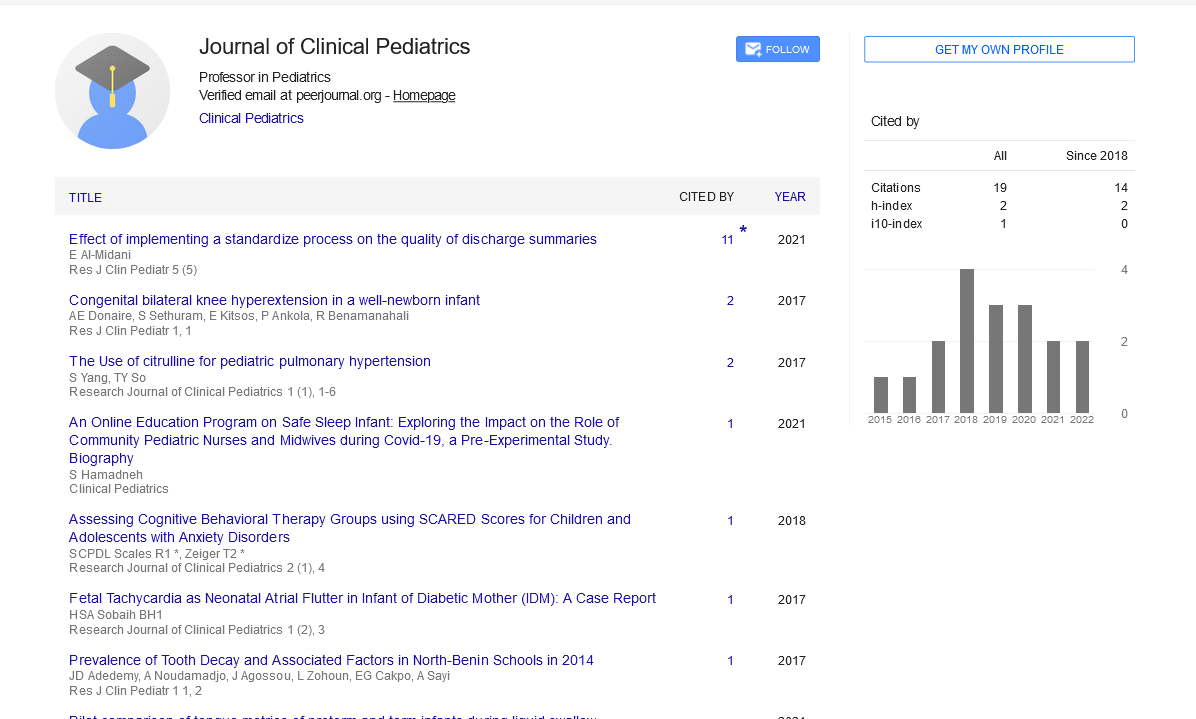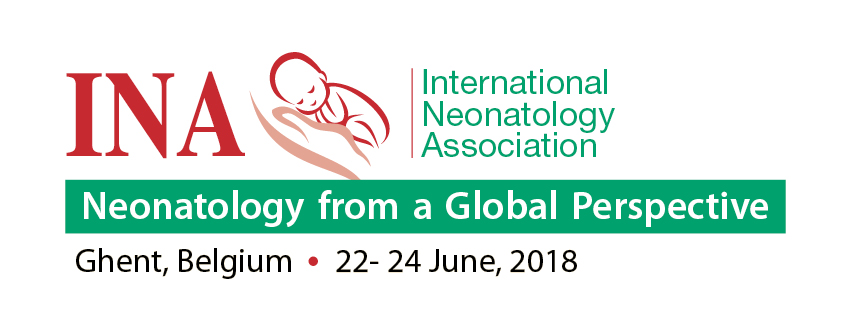Opinion Article, Res J Clin Pediatr Vol: 7 Issue: 2
Significance of Pediatric Cardiology: Unveiling Mechanisms and Clinical Relevance
George Clark*
Department of Pediatrics, Vanderbilt University, Nashville, United States of America
*Corresponding Author: George Clark
Department of Pediatrics, Vanderbilt
University, Nashville, United States of America
E-mail: george_clark@vun.edu
Received date: 22 May, 2023, Manuscript No. RJCP-23-105506;
Editor assigned date: 25 May, 2023, PreQC No. RJCP-23-105506 (PQ);
Reviewed date: 08 June, 2023, QC No. RJCP-23-105506;
Revised date: 15 June, 2023, Manuscript No. RJCP-23-105506 (R);
Published date: 22 June, 2023, DOI: 10.4172/Rjcp.1000145
Citation: Clark G (2023) Significance of Pediatric Cardiology: Unveiling Mechanisms and Clinical Relevance. Res J Clin Pediatr 7:2.
Description
Pediatric cardiology is a specialized field focused on the diagnosis, treatment, and the management of heart conditions in children. It plays an essential role in safeguarding the cardiovascular health of infants, children, and adolescents. By understanding the intricate workings of pediatric cardiology, one can appreciate its importance in early detection, timely intervention, and long-term management of cardiac conditions, ultimately improving the overall health and well-being of pediatric patients.
Pediatric heart diseases encompass a broad spectrum of congenital and acquired conditions that affect the structure and function of the heart. Congenital heart defects are the most common type, occurring during fetal development. They result from abnormal development or malformation of the heart and its major blood vessels. These defects can range from simple, such as small holes in the heart or valve abnormalities, to complex conditions involving multiple abnormalities. Understanding the underlying mechanisms behind these defects is vital to diagnosing and managing these conditions effectively.
Acquired heart diseases in children can result from various factors, including infections, inflammation, autoimmune disorders, and genetic predispositions. Rheumatic heart disease, for instance, is an acquired condition caused by an untreated streptococcal infection that leads to inflammation of the heart valves. Kawasaki disease, another example, is an inflammatory condition affecting the blood vessels, including those in the heart, and can lead to coronary artery abnormalities. Unveiling the mechanisms behind these acquired heart diseases enables early detection and appropriate intervention to prevent long-term complications.
Pediatric cardiology holds significant clinical relevance due to its impact on children's health and well-being. Early detection of cardiac conditions through routine screenings, such as fetal echocardiography and neonatal heart assessments, allows for prompt response and management. This early intervention can help prevent or minimize complications and improve long-term outcomes. Moreover, accurate diagnosis and an understanding of the mechanisms underlying pediatric heart diseases guide treatment decisions and enable personalized care plans for each child.
In the case of congenital heart defects, pediatric cardiology plays an important role in providing surgical interventions and catheter-based procedures to correct or palliate these conditions. Advances in surgical techniques, such as minimally invasive procedures and hybrid approaches, have revolutionized the field, allowing for better outcomes and faster recoveries. Pediatric cardiology also plays a key role in managing acquired heart diseases in children. Prompt diagnosis and appropriate treatment of conditions like Kawasaki disease, rheumatic heart disease, and myocarditis are essential to preventing long-term complications and preserving heart function.
In cases where medical management alone is insufficient, interventional procedures such as balloon valvuloplasty or stenting may be utilised. The multidisciplinary approach involving pediatric cardiologists, immunologists, infectious disease specialists, and other healthcare professionals ensures comprehensive and effective care for these complex conditions. Furthermore, pediatric cardiology has a significant impact on the quality of life of pediatric patients and their families. Ongoing monitoring and long-term management of cardiac conditions, including regular follow-ups, medication adjustments, and lifestyle modifications, are essential to optimizing outcomes and ensuring the well-being of these children. Pediatric cardiologists provide not only medical care but also invaluable support and guidance to help families navigate the challenges associated with managing a child's heart condition.
Conclusion
Pediatric cardiology plays a major role in unraveling the mechanisms of heart diseases in children and holds immense clinical relevance. By understanding the underlying mechanisms, pediatric cardiologists can accurately diagnose, intervene, and manage these conditions, improving long-term outcomes and enhancing the overall quality of life for pediatric patients. Through early detection, personalized treatment plans, and comprehensive care, pediatric cardiology continues to make significant strides in safeguarding the cardiovascular health of children and ensuring a brighter future for those affected by cardiac conditions.
 Spanish
Spanish  Chinese
Chinese  Russian
Russian  German
German  French
French  Japanese
Japanese  Portuguese
Portuguese  Hindi
Hindi 
